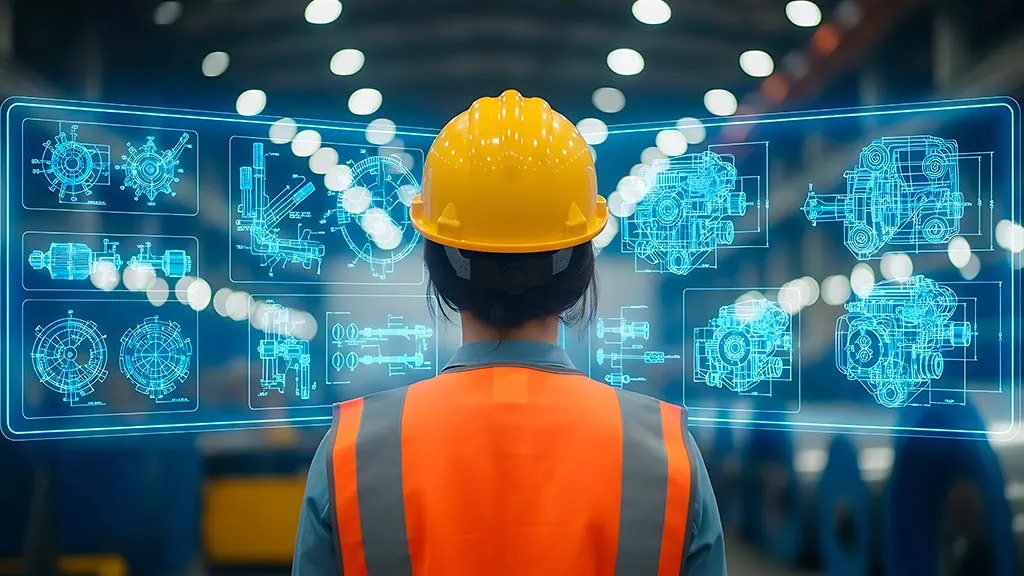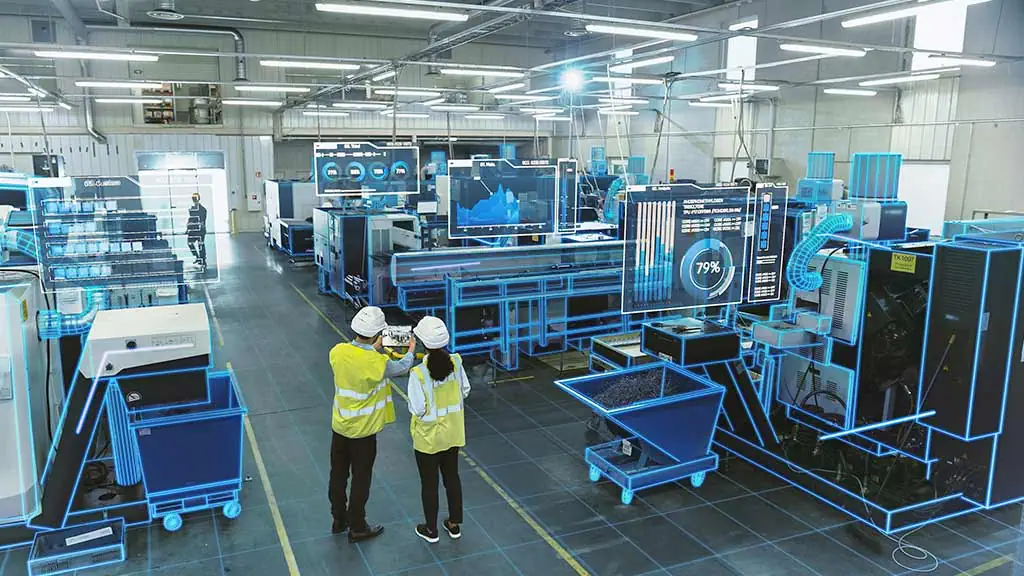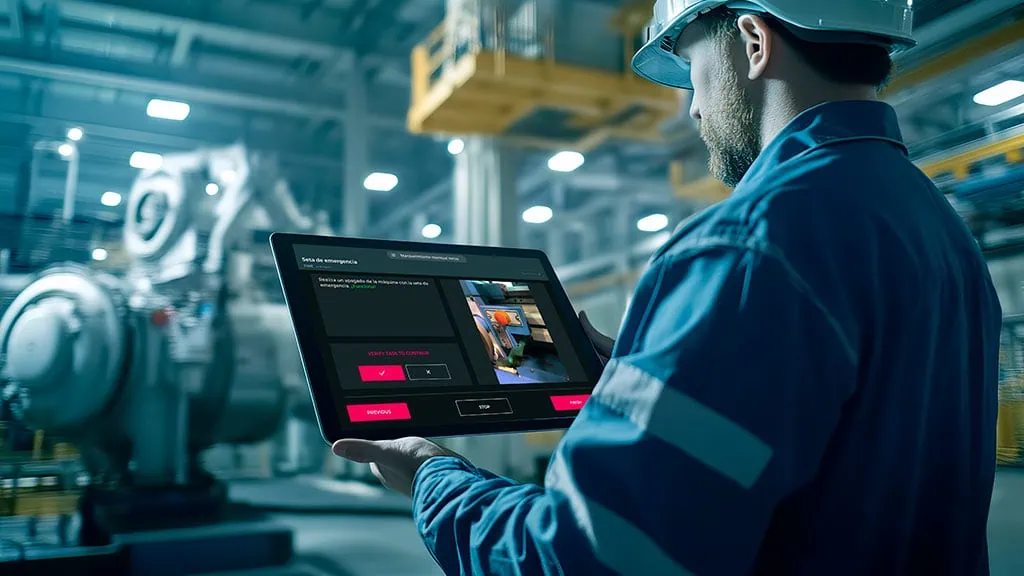Die digitale Transformation ist keine Option mehr, sondern eine Notwendigkeit für jedes zukunftsorientierte Unternehmen. In einem sich wandelnden Markt, in dem die Anforderungen ständig steigen, müssen sich Unternehmen auf modernste Technologien stützen, um ihre Prozesse neu auszurichten und flexibel auf neue Anforderungen zu reagieren.
Ein digitaler Ansatz ermöglicht es nicht nur, sich an Veränderungen anzupassen, sondern ihnen sogar vorzugreifen. Er bedeutet, die Chancen der Technologie zu nutzen und neue Organisationsformen zu begrüßen, die es ermöglichen, sich gemeinsam mit dem Markt weiterzuentwickeln.
Die aktuellen Herausforderungen
In der heutigen Zeit stehen Unternehmen – unabhängig von ihrer Größe oder Branche – immer wieder vor denselben Herausforderungen: Mangel an technischem Fachwissen, hohe Abhängigkeit von Expertenwissen und Schwierigkeiten beim Zugriff auf oder bei der Interpretation von vorhandener Dokumentation. Diese Hindernisse wirken sich direkt auf die betriebliche Effizienz und die Qualität der Verfahren aus.
In diesem Sinne stellt die Digitalisierung von Prozessen eine wichtige Lösung für diese Herausforderungen dar, da sie es ermöglicht, Wissen zu digitalisieren und den Mitarbeitern auf agile und intuitive Weise zur Verfügung zu stellen. Durch die Umwandlung von Expertenwissen in visuelle Schritt-für-Schritt-Anleitungen, die zum richtigen Zeitpunkt und am richtigen Ort zugänglich sind, wird die Lernkurve verkürzt, Fehler werden minimiert und die Produktivität gesteigert. Darüber hinaus werden sicherere, effizientere und nachhaltigere Arbeitsumgebungen geschaffen.
Digitalisierung und Augmented Reality
Die Digitalisierung von Prozessen kann durch andere Technologien wie Extended Reality unterstützt werden, um ihre Vorteile zu maximieren. Laut dem Bericht „Seeing is believing” von PwC können Virtual Reality und Augmented Reality bis zum Jahr 2030 einen großen Mehrwert für die Weltwirtschaft schaffen: „Diese Technologien werden unter anderem dazu beitragen, Produkte effizienter zu entwickeln, das Kundenerlebnis zu verbessern oder Fachkräfte besser auszubilden, was zu einer deutlichen Steigerung der Einnahmen der Unternehmen führen wird, die sie einsetzen”. Mit anderen Worten: Ihre Anwendung erweist sich als entscheidend für die Aufrechterhaltung der Wettbewerbsfähigkeit von Unternehmen.

In industriellen Umgebungen sind die Auswirkungen von Augmented Reality offensichtlich. Sie ermöglicht es Technikern, Anleitungen und Anweisungen direkt über ihre reale Umgebung zu erhalten, sodass sie ihre Hände frei haben und präziser arbeiten können.
Darüber hinaus werden die Überwachung und Steuerung von Prozessen intuitiver, die Produktion wird konsistenter und qualitativ hochwertiger, und die Interaktion zwischen Mensch und Maschine wird natürlicher, sicherer und effizienter.
Künstliche Intelligenz: Echtzeit-Überprüfung
Künstliche Intelligenz spielt eine immer wichtigere Rolle in der industriellen Digitalisierung. Ihre Fähigkeit, große Datenmengen zu analysieren, Muster zu erkennen und Entscheidungen zu automatisieren, revolutioniert die Art und Weise, wie Prozesse entworfen, ausgeführt und überwacht werden. Im operativen Bereich ermöglicht KI die Einführung automatischer Überprüfungsaufgaben, was besonders bei Aktivitäten wie Qualitätskontrollen, internen Audits oder Sicherheitskontrollen nützlich ist.

Dank Algorithmen des maschinellen Lernens können Systeme Abweichungen in Echtzeit erkennen, Fehler vorhersagen und Korrekturmaßnahmen vorschlagen, bevor Probleme auftreten. Dies verbessert nicht nur die Zuverlässigkeit der Prozesse, sondern befreit die Mitarbeiter von sich wiederholenden Aufgaben und ermöglicht es ihnen, sich auf Aufgaben zu konzentrieren, die kritisches Urteilsvermögen und Problemlösungsfähigkeiten erfordern.
Die digitale Transformation muss auch kulturell und organisatorisch erfolgen
Damit die digitale Transformation jedoch effektiv ist, muss sie mit einem tiefgreifenden kulturellen und organisatorischen Wandel einhergehen. Technologie allein garantiert keinen Erfolg. Unternehmen müssen eine Innovationskultur fördern, in der Kreativität, Zusammenarbeit und Bereitschaft zum Wandel geschätzt werden. Es ist von entscheidender Bedeutung, dass sich die Teams als Teil des Prozesses fühlen und den Zweck und die Vorteile der implementierten Tools verstehen.
Kontinuierliche Weiterbildung ist der Schlüssel, um diesen Übergang zu erleichtern. Die Schulung der Mitarbeiter im Umgang mit neuen Technologien ermöglicht ihnen nicht nur, ihre Arbeit besser zu erledigen, sondern trägt auch dazu bei, Widerstände gegen Veränderungen abzubauen. Ebenso ist es wichtig, dass die interne Kommunikation transparent ist und die aktive Beteiligung aller Hierarchieebenen gefördert wird. Wenn die Menschen den Wert der digitalen Transformation verstehen und sich einbezogen fühlen, verläuft der Einführungsprozess viel reibungsloser und effektiver.
Auf dem Weg zu einem neuen Standard in der Industrie 4.0
Die Digitalisierung von Prozessen ist kein Trend mehr, sondern ein Standard im neuen Industriezeitalter. Ihre Auswirkungen gehen weit über operative Verbesserungen hinaus: Sie definiert neu, wie wir arbeiten, Entscheidungen treffen und mit unserer Umwelt umgehen.
Angesichts struktureller Herausforderungen wie dem Mangel an Fachkräften oder der Notwendigkeit der Nachhaltigkeit reagiert die Digitalisierung nicht nur, sondern übernimmt eine Führungsrolle. Sie ermöglicht es uns, in einem dynamischen und sich wandelnden Markt erfolgreich zu konkurrieren und gleichzeitig die Effizienz, Sicherheit und Innovationsfähigkeit zu verbessern.
Wir stehen zweifellos vor einem technologischen, aber auch kulturellen und sozialen Wandel. Und diejenigen Unternehmen, die beide Dimensionen zu integrieren wissen, werden besser positioniert sein, um die Zukunft der Branche anzuführen.


